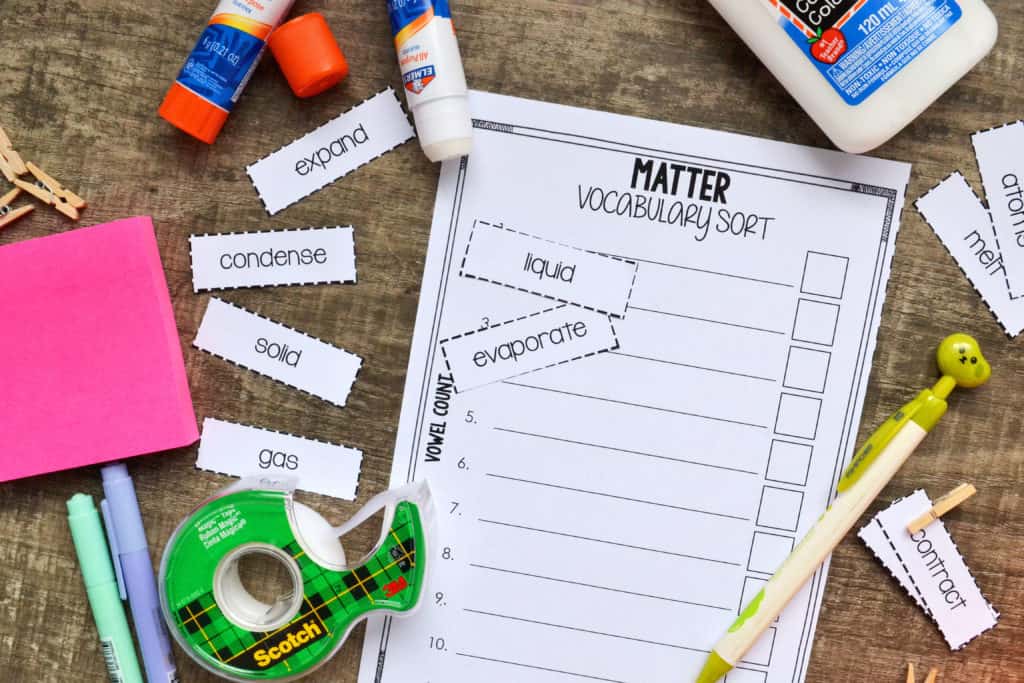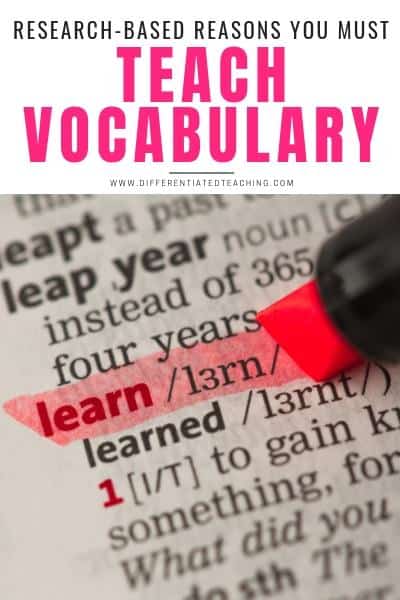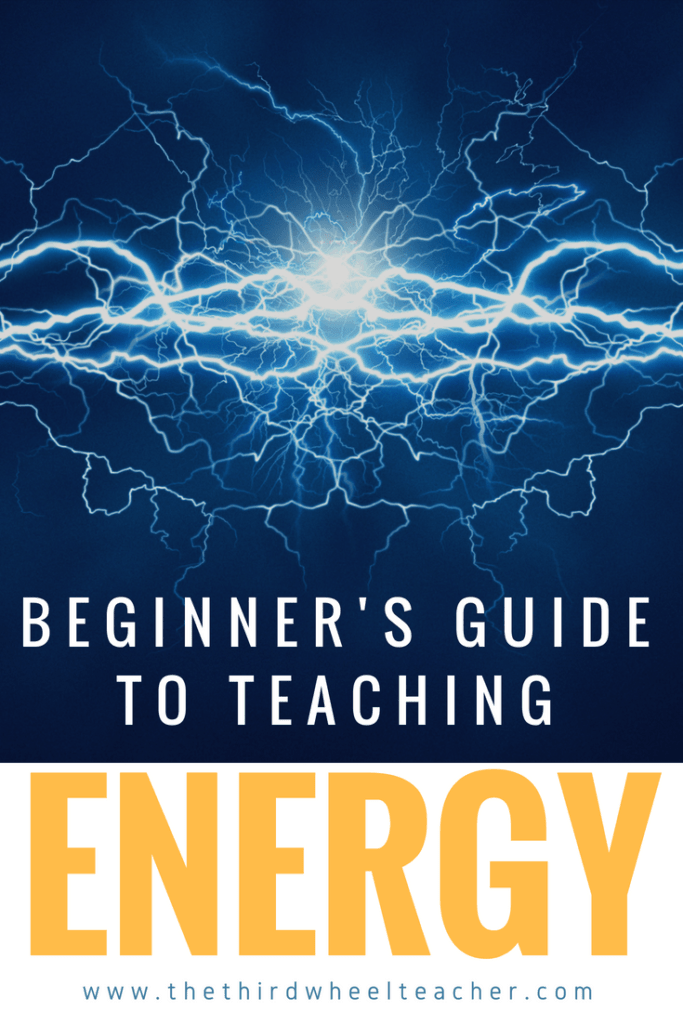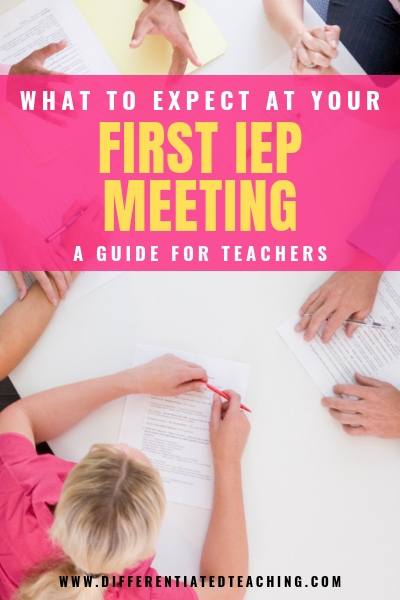5 Simple Accommodations for Struggling Readers in Science & Social Studies
Many students love science and social studies. There are often hands-on activities, simulations, and projects that keep these subjects engaging for learners. However, for some students, these subjects can be quite intimidating due to all of the non-fiction reading that is involved. That’s why supporting struggling readers in science and social studies is so important. Today I wanted to share five simple accommodations for struggling readers that you can incorporate into science and social studies that will help these learners stay on track.

Super low-prep accommodations for struggling learners in science & social studies
If some of your students are struggling readers, you must take time to think about how you can ensure they have access to the content despite their difficulties with reading. Some simple differentiation can mean the difference between a student feeling overwhelmed and a student who can navigate the content on equal footing with her peers.
Here are five low-prep strategies you can implement to help make science and social studies more enjoyable and stress-free for your struggling learners!
1. Introduce vocabulary before each unit & provide extra opportunities for practice.
Vocabulary is often one of the biggest challenges for struggling readers regarding science and social studies.
There are so many big words that are difficult to pronounce, and the content-specific vocabulary is often unfamiliar and confusing. Students who struggle with reading often do so because of gaps in decoding skills. Their challenges can be compounded with these Tier 3 words.
Pre-teaching vocabulary can be a huge accommodation for struggling readers. It gives them familiarity with these new words and allows them to focus on making connections within the content rather than being bogged down in the foundations of reading.
There are several simple ways you can do this that don’t require much extra time or effort. Here are just a few:
- Send home a vocabulary list several days before starting a new unit. Include a short note explaining the upcoming unit and how to use the word list with their child. Home practice doesn’t need to be long or intense. Just reading and reviewing the words once a day can be a huge help!
- Introduce content vocabulary using a center or small group. Sometimes it can be difficult or impossible for parents to help. Using a small group or center to introduce the vocabulary in advance can be a great way to pre-teach unit vocabulary in the days before you begin.
- Create a visual preview. Start hanging visual vocabulary cards in advance. This can allow students to see and begin making connections with content vocabulary in advance.
Below is an example of a center activity that can help students become familiar with the vocabulary while practicing language arts skills. While this particular activity doesn’t focus on defining new vocabulary, it does help students who struggle to decode and build word recognition. You can read more about how I built science vocabulary during centers here.

2. Provide extra copies of the text and share in advance.
As students age, the reading required in science and social studies grows. It also often comes from textbooks. This can overwhelm struggling readers because they can’t keep up with their peers.
Providing an extra textbook or a copy of in-class reading to keep at home can be a great way to overcome this challenge.
You can easily keep parents informed about what chapter(s) you are working on or make extra copies and send a packet home with students at the beginning of each unit. This allows struggling readers to pre-read, review, and re-read with adults or siblings to ensure they understand.
It can also be helpful as students prepare for end-of-unit assessments.
3. Use reading tools & strategies to focus on content.
Reading should never be a barrier to growth in science and social studies. Often times we are acutely aware of student needs during reading. However, it can be easy to overlook putting the same tools and strategies into place for science and social studies.
Here are three of my favorites:
- Use a line finder (affiliate link) or index card to help students keep their place in reading. Students who use these in reading class should also use one when reading science and social studies content! Amazon has many inexpensive options to find the right size for your readers.
- Chunking text into shorter blocks can also be helpful. This may mean you make an extra copy. Cut the paragraphs apart or teach students to fold the page to create less text.
- Partner reading or read-aloud is also an option for those students who are significantly below grade level. You can even have advanced students or early finishers record themselves reading the selection aloud. Students can listen along as they read independently. This can be really helpful for students who are embarrassed or uncomfortable with their reading struggles.
4. Differentiate homework.
Many science and social studies textbook companies produce an audio CD or leveled readers that go along with the chapter or topic you’re focusing on in class.
If you assign reading homework, you can provide struggling readers with these support materials to help them complete assignments painlessly (their parents will thank you as well!).
5. Focus on the learning, not the paperwork.
Oftentimes, students who struggle with reading fall behind on their work and end up with a pile of overdue or missing assignments.
This can be frustrating for you, as a teacher, because it prevents you from grading and returning papers in a timely fashion. It can also be very overwhelming for the student.
When necessary, take oral responses or find alternative ways to determine if unit concepts are mastered. You can document these adjustments in the grade book to help keep parents in the loop. However, a student who knows the information should never be punished with poor grades in other content areas because of an identified gap in reading skills.
An alternative to waiting for failure
If you’ve ever worked with struggling readers, you know that these challenges can easily overshadow their academic successes. It is important that we, as educators, find ways to support and assess these students in science and social studies to prevent these difficulties from negatively impacting other content areas.
While the tips above don’t negate the need to document and provide intervention, they allow students to work around their reading challenges and prevent them from falling further behind or becoming disengaged with learning.









